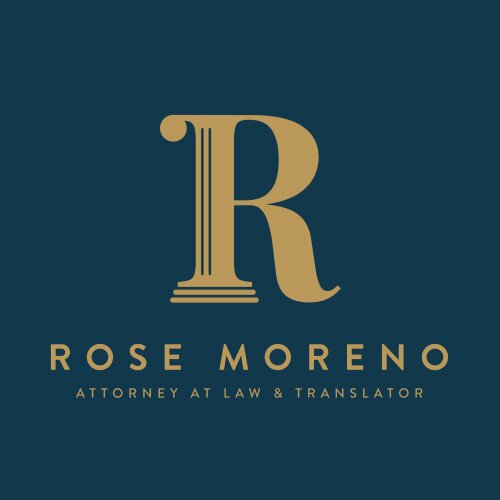Best Private Client Lawyers in Panama City
Share your needs with us, get contacted by law firms.
Free. Takes 2 min.
List of the best lawyers in Panama City, Panama
Panama Private Client Legal Articles
Browse our 1 legal article about Private Client in Panama written by expert lawyers.
- Panama Private Interest Foundations: Asset Protection Guide
- Private Client in Panama: Using Corporations and Private Interest Foundations (PPIF) For Wealth, Privacy, and Succession Panama Private Interest Foundations (PPIFs) are a hybrid between a trust and a company, created under Law 25 of 1995, used by high-net-worth individuals for asset protection, privacy, and succession planning. Unlike a Panama... Read more →
About Private Client Law in Panama City, Panama
Private Client law in Panama City, Panama, covers legal services tailored to individuals, families, and high net worth clients seeking to manage, protect, and transfer their personal assets. This area typically includes estate planning, tax advice, setting up trusts or foundations, succession planning, asset protection, and more. Panama has long been known as a reputable international banking and financial hub, offering services that attract both local and international clients looking to secure and manage their wealth. The Private Client practice in Panama City combines local expertise with knowledge of international law, making it essential for individuals requiring comprehensive, cross-border solutions.
Why You May Need a Lawyer
There are several common reasons why individuals seek the expertise of a Private Client lawyer in Panama City:
- Planning and drafting wills and testaments to ensure your wishes are respected after your passing.
- Establishing trusts or private interest foundations for asset protection and succession planning.
- Navigating inheritance and probate processes to avoid lengthy legal disputes.
- Entering into marital agreements, such as prenuptial or postnuptial contracts, to protect personal or family assets.
- Managing tax planning for individuals and families, including those with international assets.
- Assisting expatriates or foreign nationals with legal compliance when investing or relocating to Panama.
- Guardianship arrangements for minor children or vulnerable family members.
- Resolving family business succession issues and related corporate governance matters.
In these situations, a local lawyer with experience in Private Client matters ensures compliance with Panamanian laws and helps avoid common pitfalls.
Local Laws Overview
Understanding local regulations is crucial for anyone seeking Private Client legal services in Panama City. Here are some key aspects:
- Wills and Inheritance: Panamanian law dictates how inheritance is distributed, with "forced heirship" rules often protecting certain heirs. A valid will must comply with specific formalities under the Civil Code.
- Trusts and Foundations: Panama is renowned for its Private Interest Foundation Law, which allows flexible structures for estate planning and asset protection. Trust laws also provide confidentiality and security components attractive to international clients.
- Family Law: Marriage, divorce, and marital property regimes are governed under the Family Code. Specific arrangements can be agreed upon, but default community property rules may apply without a contract.
- Taxation: Panama uses a territorial tax system - only income generated within Panama is subject to tax. There are laws and treaties relevant to foreign income, cross-border asset holding, and international tax compliance.
- Probate and Succession: Probate processes in Panama can be different from other jurisdictions, especially concerning foreign assets or non-resident heirs. Legal assistance helps expedite the process and prevents delays.
A specialized Private Client lawyer provides clarity and ensures your arrangements are both effective and compliant.
Frequently Asked Questions
What is a Private Interest Foundation and how does it differ from a trust?
A Private Interest Foundation in Panama is a legal entity often used for estate planning, asset protection, and inheritance purposes. Unlike trusts, foundations are separate legal bodies and do not have owners or beneficiaries in the traditional sense. Both structures offer confidentiality and flexibility, but foundations are particularly favored in Panama for holding assets and managing succession.
Do I have to be a Panamanian citizen to set up a foundation or trust in Panama?
No, both Panamanians and foreign nationals can establish private interest foundations or trusts in Panama. Many international clients use these structures due to Panama’s advantageous legal framework.
How are inheritances handled in Panama?
Panama uses the Civil Law system, including forced heirship rules. This means a portion of your estate is reserved for immediate family members. However, estate planning tools like wills or foundations can help manage how your assets are distributed within legal limits.
Is estate tax or inheritance tax applicable in Panama?
No, Panama does not levy estate or inheritance taxes. Beneficiaries generally receive assets without additional tax burdens, though other considerations such as capital gains may apply in specific cases.
How can I ensure my foreign assets are included in my Panamanian estate plan?
Effective estate planning in Panama can accommodate foreign assets, but coordination with laws in other countries is necessary. A lawyer can help you design structures and documentation that are effective across multiple jurisdictions.
Can I make a will in English in Panama?
Panamanian law requires that all legal documents, including wills, be in Spanish. However, dual-language versions can be prepared for reference. The official document for legal proceedings must always be in Spanish.
What happens if I die without a will in Panama?
If you die intestate (without a will), Panama’s Civil Code determines how your assets are distributed. Forced heirship rules will apply, and your spouse, children, or parents will typically inherit according to statutory shares.
Are Panamanian private foundations confidential?
Yes, Panama's laws provide a high degree of confidentiality for private interest foundations. Beneficiaries' identities can be kept private, and information is generally only accessible to authorities under specific legal circumstances.
What are the legal requirements to draft a will in Panama?
Wills must be signed before a Panamanian notary, and typically require the presence of three witnesses. The process ensures the document is both valid and enforceable under Panamanian law.
How long does the probate process take in Panama?
The probate process in Panama varies depending on the complexity of the estate and whether any disputes arise. On average, uncomplicated probate proceedings may take between six months to one year.
Additional Resources
If you need more information or official guidance, consider consulting these resources:
- Panama Ministry of Government (Ministerio de Gobierno) - oversees notaries and civil law matters
- "Registro Público de Panamá" (Panama Public Registry) - official portal for company and foundation records
- Panama Bar Association (Colegio Nacional de Abogados) - directory for qualified private client attorneys
- Superintendency of Banks - for regulatory information relevant to trusts and asset structures
- Embassies and consulates - for foreign nationals seeking guidance on cross-border inheritance and estate matters
Next Steps
If you believe you require legal assistance with Private Client matters in Panama City, here is how to proceed:
- Gather all relevant personal and asset documentation, including existing wills, property records, and family information.
- List your objectives - such as inheritance planning, asset protection, or tax optimization - to clarify your goals when consulting with a lawyer.
- Contact a reputable law firm or private client attorney in Panama City, preferably one with experience dealing with both local and international clients.
- Schedule an initial consultation to discuss your situation and ask about legal strategies, expected timelines, and costs involved.
- After your consultation, review the proposed legal structures, documentation, or estate plans, and make sure all your questions are answered before proceeding.
- Maintain regular communication with your legal advisor to ensure your plans remain compliant with Panamanian law and meet your personal circumstances as they evolve.
A qualified Private Client lawyer in Panama City can navigate the complexities of local law and help you achieve peace of mind for yourself and your loved ones.
Lawzana helps you find the best lawyers and law firms in Panama City through a curated and pre-screened list of qualified legal professionals. Our platform offers rankings and detailed profiles of attorneys and law firms, allowing you to compare based on practice areas, including Private Client, experience, and client feedback.
Each profile includes a description of the firm's areas of practice, client reviews, team members and partners, year of establishment, spoken languages, office locations, contact information, social media presence, and any published articles or resources. Most firms on our platform speak English and are experienced in both local and international legal matters.
Get a quote from top-rated law firms in Panama City, Panama — quickly, securely, and without unnecessary hassle.
Disclaimer:
The information provided on this page is for general informational purposes only and does not constitute legal advice. While we strive to ensure the accuracy and relevance of the content, legal information may change over time, and interpretations of the law can vary. You should always consult with a qualified legal professional for advice specific to your situation.
We disclaim all liability for actions taken or not taken based on the content of this page. If you believe any information is incorrect or outdated, please contact us, and we will review and update it where appropriate.
Browse private client law firms by service in Panama City, Panama
Panama City, Panama Attorneys in related practice areas.












